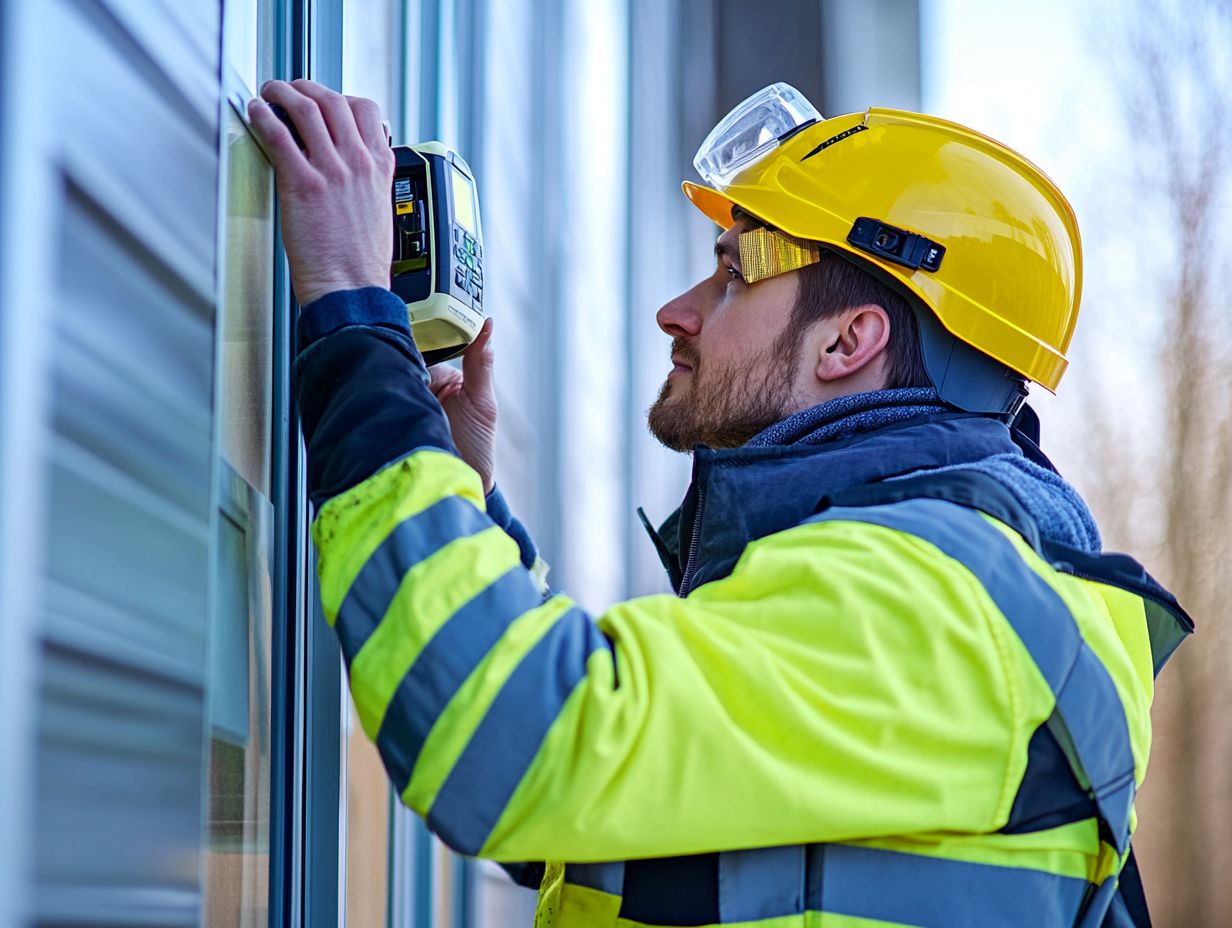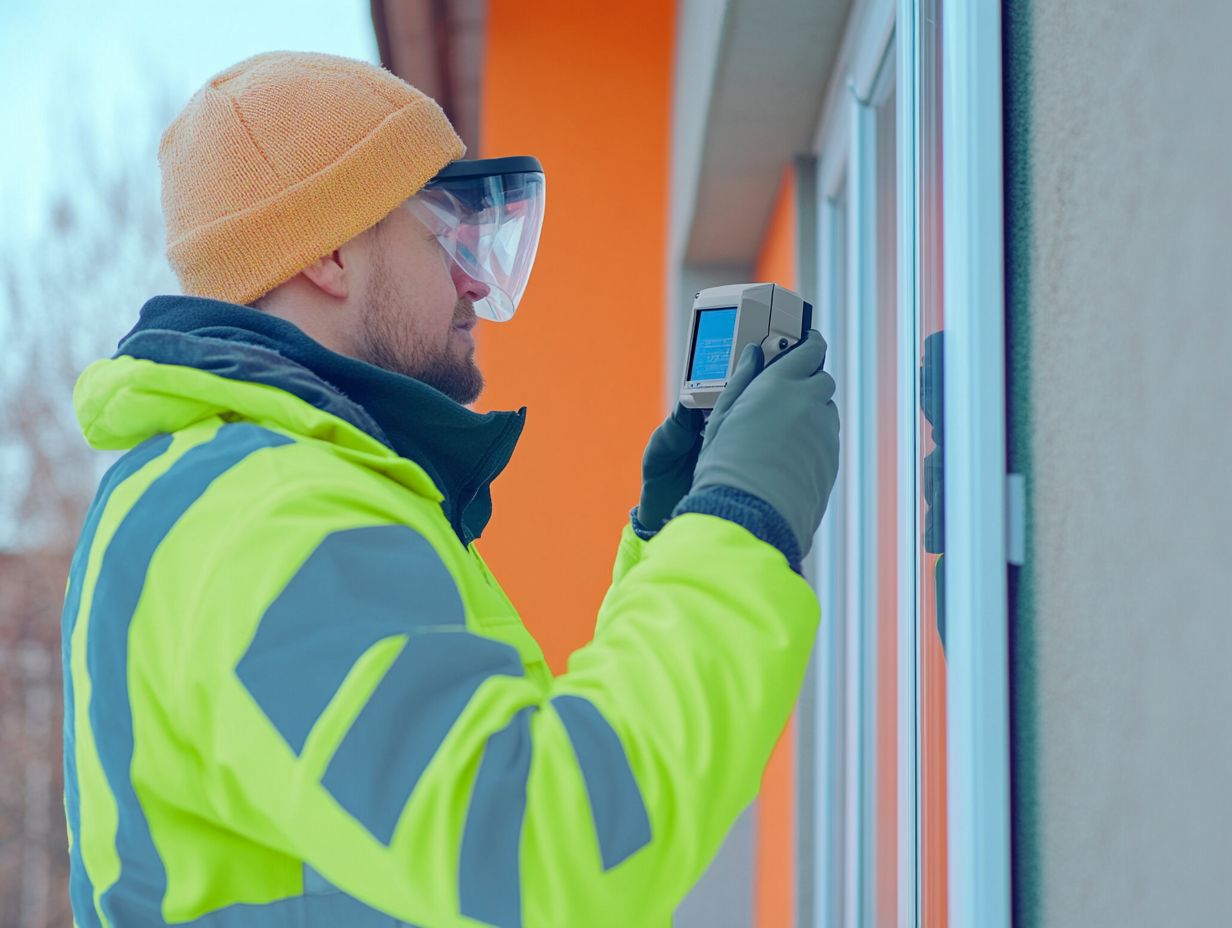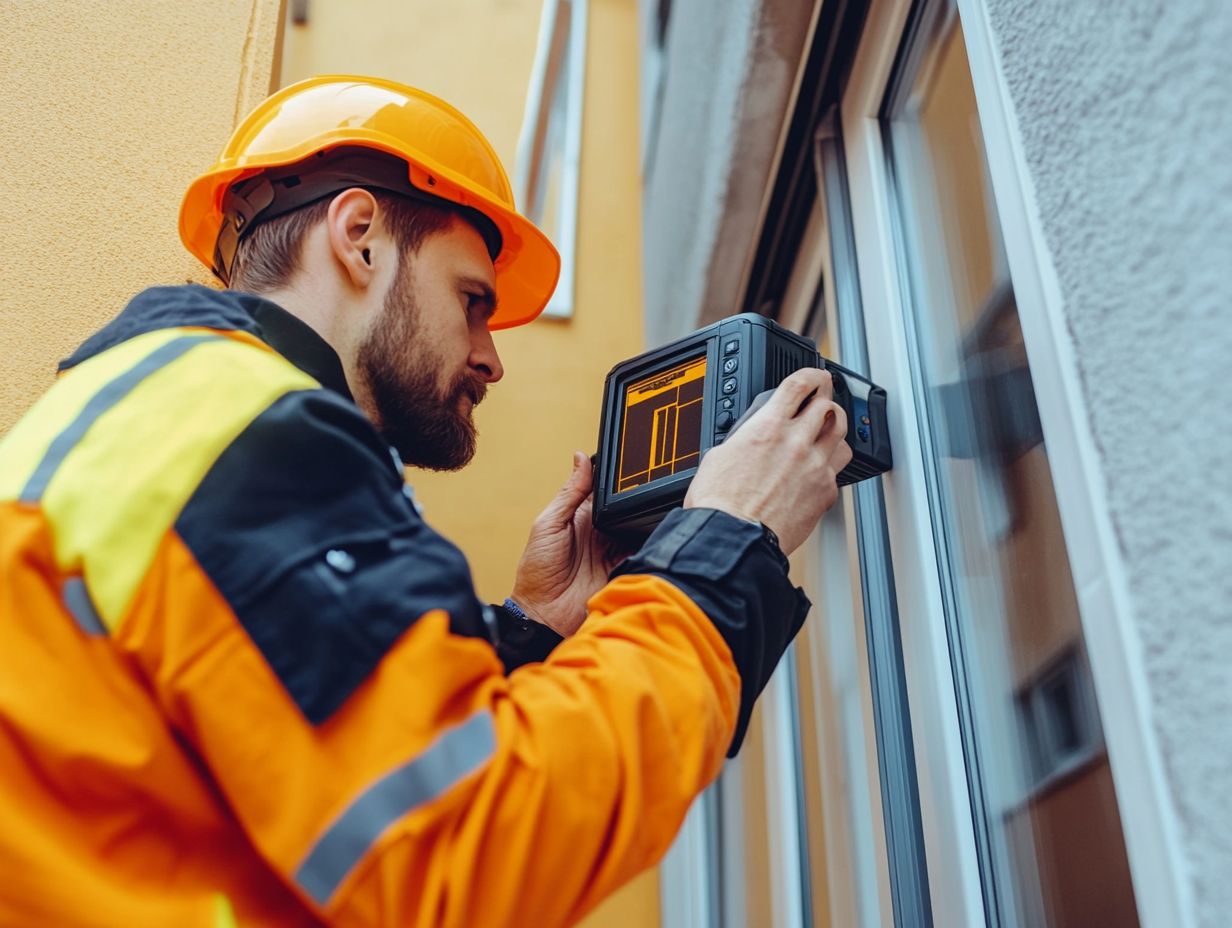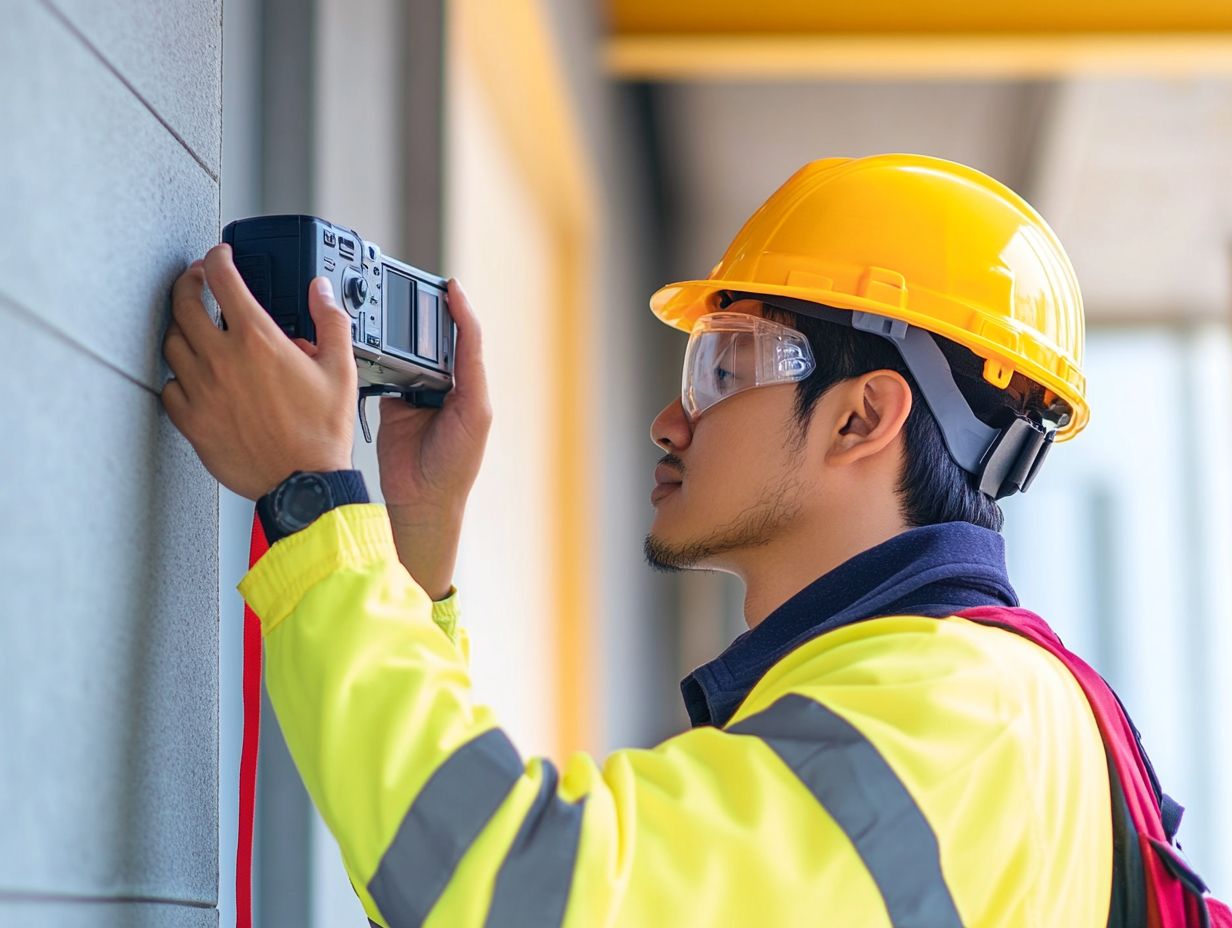The Benefits of Professional Energy Audits
In today’s world, maximizing energy efficiency is more crucial than ever. A professional energy audit is an essential tool for homeowners and businesses like yours, aiming to reduce wasted energy and cut costs.
This article explores what a professional energy audit entails, its significance for your finances and the environment, and outlines the step-by-step process involved. You’ll find key benefits highlighted, along with tips for selecting the right audit provider.
Discover how this proactive approach can lead to substantial savings and contribute to a greener future.
Contents
- Key Takeaways:
- What is a Professional Energy Audit?
- The Importance of Energy Efficiency
- How a Professional Energy Audit Works
- Benefits of a Professional Energy Audit
- Choosing the Right Energy Audit Provider
- Frequently Asked Questions
- What is a professional energy audit?
- What are the benefits of a professional energy audit?
- Who should consider getting a professional energy audit?
- How long does a professional energy audit take?
- What tools and techniques are used in a professional energy audit?
- Can a professional energy audit help save money?
Key Takeaways:

A professional energy audit helps businesses and individuals save money and reduce their environmental impact by identifying and addressing energy inefficiencies.
Energy efficiency is vital for both the environment and financial success.
When choosing an energy audit provider, consider factors such as experience, expertise, and cost to ensure a thorough and effective audit.
What is a Professional Energy Audit?
A professional energy audit is a thorough evaluation designed to assess your building’s energy efficiency. It pinpoints areas ripe for improvement.
Led by trained energy consultants, this process examines energy consumption patterns, heating and cooling systems, insulation levels, and provides tailored energy-saving recommendations.
The ultimate aim is to optimize your energy usage, lower your energy bills, and reduce greenhouse gas emissions. This not only enhances your property’s value and comfort levels but also ensures compliance with energy standards and local regulations.
Definition and Purpose
The primary goal of a professional energy audit is to uncover opportunities for enhancing energy efficiency in commercial buildings. This ultimately leads to reduced energy consumption and lower utility bills for you as a building owner.
By examining your energy use patterns, these audits reveal inefficiencies and offer actionable recommendations. These insights positively impact your finances while contributing to a more sustainable future.
You can expect to identify practices that minimize energy waste, such as upgrading outdated lighting or optimizing heating and cooling performance. Embracing these measures demonstrates your commitment to environmental goals.
Now is the perfect time to take control of your energy management and make a lasting impact.
The Importance of Energy Efficiency
Energy efficiency is essential for lowering operational costs, reducing greenhouse gas emissions, and enhancing the sustainability of your commercial buildings.
By adopting effective energy conservation measures, you can cut down on energy bills and contribute meaningfully to the environment by lowering your carbon footprint.
Energy efficiency upgrades often qualify for financial incentives, making them an appealing choice for managing utility expenses and optimizing long-term investments.
Impact on Environment and Finances

The impact of energy efficiency resonates deeply, influencing both the environment and your business’s financial well-being. Reducing energy consumption lowers utility costs while cutting down on greenhouse gas emissions.
By embracing more efficient technologies like LED lighting or high-efficiency heating and cooling systems you can significantly decrease your energy bills and contribute to reducing your carbon footprint.
Many governments and utility companies offer enticing financial incentives, such as tax credits and rebates, to assist you in your sustainability journey.
For example, investing in solar panels may make you eligible for state-sponsored rebates covering a substantial portion of installation costs.
Don’t wait start your journey towards energy efficiency today!
Ready to save money and help the planet? Schedule your professional energy audit today!
How a Professional Energy Audit Works
A professional energy audit is a meticulous, step-by-step process that starts with an initial energy assessment to evaluate your building’s current energy usage and pinpoint inefficiencies.
This thorough approach typically includes a detailed analysis of existing building systems, heating, ventilation, and air conditioning (HVAC) performance, insulation levels, and air leaks. It is complemented by the collection of data regarding utility bills and energy consumption profiles.
Once the assessment is complete, energy consultants deliver tailored energy-saving recommendations aimed at enhancing energy efficiency and easing the financial burden on property owners like you.
Step-by-Step Process
The step-by-step process of a professional energy audit typically kicks off with an on-site inspection by qualified energy consultants. They meticulously assess your building s HVAC systems, insulation levels, and energy usage patterns.
Once this initial evaluation is complete, the consultants delve into detailed data collection. They often employ advanced tools like thermal imaging cameras and energy meters. These instruments are essential for pinpointing temperature anomalies and gauging energy consumption in real-time.
After gathering the necessary data, the consultants analyze it to uncover patterns and identify areas where energy inefficiencies lurk. The final phase culminates in a comprehensive report filled with actionable recommendations tailored specifically to enhance your building s energy performance.
This thorough approach not only sheds light on current issues but also lays out a roadmap to reduce energy costs and improve sustainability for your space.
Benefits of a Professional Energy Audit
A professional energy audit offers amazing benefits that reach far beyond just saving money! These advantages include substantial environmental benefits and enhanced energy efficiency within commercial buildings, which is why you need regular energy audits.
By pinpointing and rectifying energy inefficiencies, you can effectively reduce energy waste, lower maintenance costs, and see significant cuts in your utility bills.
Adopting the recommended energy-saving measures not only contributes to a reduced carbon footprint but also boosts your property s value. This creates a harmonious balance between environmental responsibility and financial gain.
Cost Savings and Environmental Impact

A professional energy audit can unlock significant cost savings for you as a building owner. It identifies inefficiencies and offers actionable recommendations that can lower your utility bills and reduce energy consumption.
By conducting a thorough assessment of various elements like insulation, lighting, and HVAC systems, these audits can reveal promising opportunities for enhanced efficiency. For example, swapping out outdated lighting for energy-efficient LED bulbs can slash electricity costs dramatically sometimes by as much as 75%!
Implementing the suggestions from energy audits not only trims your expenses but also contributes to reducing your carbon footprint. This plays a vital role in the fight against climate change.
Beyond the financial benefits, improved energy efficiency enhances the overall quality of life in both residential and commercial spaces. It ensures a more comfortable and healthier environment for everyone involved.
Identifying and Addressing Energy Inefficiencies
Identifying and addressing energy inefficiencies is at the heart of any professional energy audit. It gives you the power to make informed decisions about energy management and system upgrades.
These inefficiencies can arise from various common culprits, such as air leaks around windows and doors, poorly insulated walls and roofs, or outdated HVAC systems that guzzle energy unnecessarily.
For example, by sealing those pesky air leaks with weatherstripping or caulk, you can significantly reduce energy loss. Upgrading an outdated HVAC system to a more energy-efficient model think one with a high Seasonal Energy Efficiency Ratio (SEER), which measures how efficiently a cooling system operates can elevate your overall comfort and slash your monthly utility bills.
By implementing these energy-saving recommendations, you enhance your facility’s performance and contribute positively to environmental sustainability by lowering your overall energy consumption.
Don t wait take control of your energy costs today!
Choosing the Right Energy Audit Provider
Selecting the right energy audit provider is crucial for unlocking the full advantages of an energy audit. This ensures the process is executed by qualified professionals.
When you’re on the hunt for an energy consultant, take a moment to evaluate their professional background, certifications, and hands-on experience with energy-efficient technologies and practices.
Familiarizing yourself with the financial incentives available for energy upgrades can enhance your decision-making process and empower you to make informed investment choices that benefit your property.
Factors to Consider
When selecting an energy audit provider, consider several key factors to ensure optimal results in energy efficiency improvements and cost savings.
Firstly, assess the provider’s experience with specific HVAC (Heating, Ventilation, and Air Conditioning) systems, as this expertise can greatly influence the accuracy and depth of the assessment.
Familiarity with local regulations, such as Local Law 97, is essential. A provider who understands these laws can help you meet compliance requirements easily.
The ability to deliver customized recommendations tailored to your building s unique features and objectives is vital.
By aligning the provider s knowledge and approach with your goals, you enhance the effectiveness of the audit and cultivate a more productive working relationship, ultimately leading to sustainable outcomes.
Frequently Asked Questions

What is a professional energy audit?
A professional energy audit is a systematic review of a building’s energy use and efficiency, conducted by a certified energy auditor. It involves a detailed analysis of the building’s usage patterns, equipment, and systems to identify energy-saving opportunities.
What are the benefits of a professional energy audit?
The benefits of a professional energy audit include identifying energy-saving opportunities, reducing energy waste, lowering utility bills, improving indoor air quality, and increasing overall comfort and safety in the building. To fully grasp these advantages, consider understanding the cost-benefit of energy audits. Don’t miss out on these savings!
Who should consider getting a professional energy audit?
Any building owner, whether residential or commercial, can benefit from a professional energy audit. Older buildings can greatly benefit from an audit, especially those with high utility bills or those looking to improve energy efficiency and reduce environmental impact.
How long does a professional energy audit take?
The duration of a professional energy audit can vary depending on the size and complexity of the building. On average, it can take anywhere from 2 to 8 hours to complete.
What tools and techniques are used in a professional energy audit?
A certified energy auditor will use a combination of visual inspection, energy modeling software, and specialized equipment such as blower doors, infrared cameras, and data loggers to assess a building’s energy use and efficiency.
Can a professional energy audit help save money?
Yes, a professional energy audit can help save money in the long run by identifying cost-effective energy-saving measures that significantly reduce utility bills. Understanding the purpose of energy audits can also help avoid costly repairs and replacements by detecting potential issues early on.






